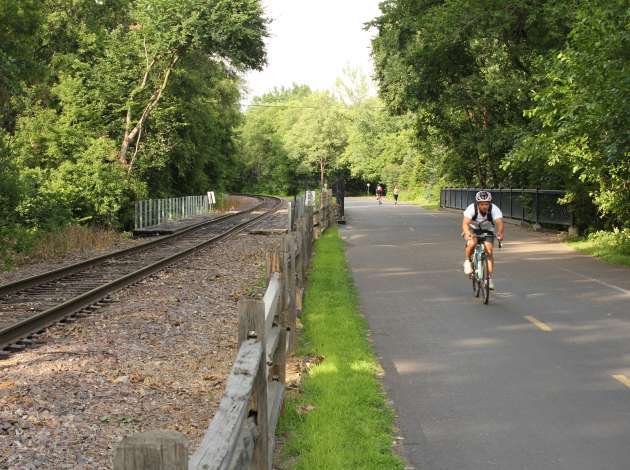
Light rail hopes tied up in special session
By DYLAN THOMAS : The Journal : JUNE 1, 2016
The Legislature adjourned in May without committing the $135 million remaining in its 10-percent share of the $1.79-billion transit project. If the state doesn’t close the gap soon, $895 million in federal matching funds may be at risk.
The power to call a special session rests with Gov. Mark Dayton, who hasn’t announced his decision yet. Local leaders who serve on the project’s Corridor Management Committee were also scheduled to meet just before this issue went to press.
Hennepin County Commissioner Peter McLaughlin said May 31 “there isn’t a definitive Plan B” if the state doesn’t come through, although discussions among local funders were underway. Still, McLaughlin expressed optimism about the prospects for a special session, noting both DFLers and Republicans have incentive to come up with a plan to fund not just transit needs, but also road and bridge repairs statewide.
The Legislature failed to pass either a transportation or a bonding bill before the end of the session.
“This is a case where everybody needs to come together and come up with a solution that works for everybody,” McLaughlin said.
About $130 million in local dollars have already been spent on the project, according to the Metropolitan Council, the lead agency on SWLRT.
Met Council aims to break ground in 2017 on the 14.5-mile extension of the Metro Transit Green Line, which would connect Minneapolis and St. Paul to Eden Prairie and employment opportunities in the southwest metro. Service would begin in 2020.
But that timeline may be in jeopardy. SWLRT is one of six projects around the country vying for funds through the Federal Transit Administration New Starts program, and project supporters have long warned delays could cost the project its spot in the queue.
Met Council Chair Adam Duininck didn’t grant an interview on SWLRT in the week after the end of the session, but he targeted House Speaker Kurt Daudt in a written statement. The leader of the House Republicans was highly critical of SWLRT in the runup to the session.
“It is immensely disappointing that state lawmakers were unable to find a real, long-term solution for our transportation and transit needs,” Duininck wrote. “Despite broad support for transit funding, the Republican-led House and Speaker Daudt refused to include a SWLRT solution in the bonding bill even though it would not have required a dime of state investment. In this act, Speaker Daudt acted to prevent local control to provide its own funding solution.”
Both Dayton and Senate Democrats supported plans to fund the state’s share by hiking an existing quarter-cent metro-area sales tax by either a half-cent or three-quarters of a cent.
“We’ve been saying that the sales tax, which is the mechanism that’s used in virtually every region in the country that has built a modern transit system, that that’s what we should be doing here,” McLaughlin said.
Reports from the Capitol indicate there was also a last-minute attempt to increase the Hennepin County Regional Rail Authority’s contribution to cover the state’s share.
In his statement, issued May 23, Duininck said Met Council was meeting with the project’s other local partners to discuss funding alternatives. He noted there remained “overwhelming support from the communities, businesses and local elected officials along the line.”
The mayors of three cities along the line, Hopkins, St. Louis Park and Eden Prairie, all sent letters to Daudt in May reiterating their support for the project.
SWLRT passed a significant milestone in May when the Federal Transit Administration released the final environmental impact statement for the project. Its release May 13 kicked-off a 31-day public comment period on the 17,000-page report.
That period would have come to a close June 13. The day after the legislative session ended, two Minneapolis DFLers, Rep. Frank Hornstein and Sen. Scott Dibble, sent a letter to the FTA requesting an extension of the comment period to 90 days.
“Many stakeholders with varying levels of expertise are interested in looking closely at the document and providing feedback,” the two wrote, also noting the document’s extreme length and highly technical nature.
Also in May, a U.S. District Court Judge John Tunheim ordered Met Council to turn over documents to a group suing the agency over SWLRT. Lakes and Parks Alliance of Minneapolis contends Met Council violated state and federal environmental laws by settling on a final route before the environmental review process was complete.

